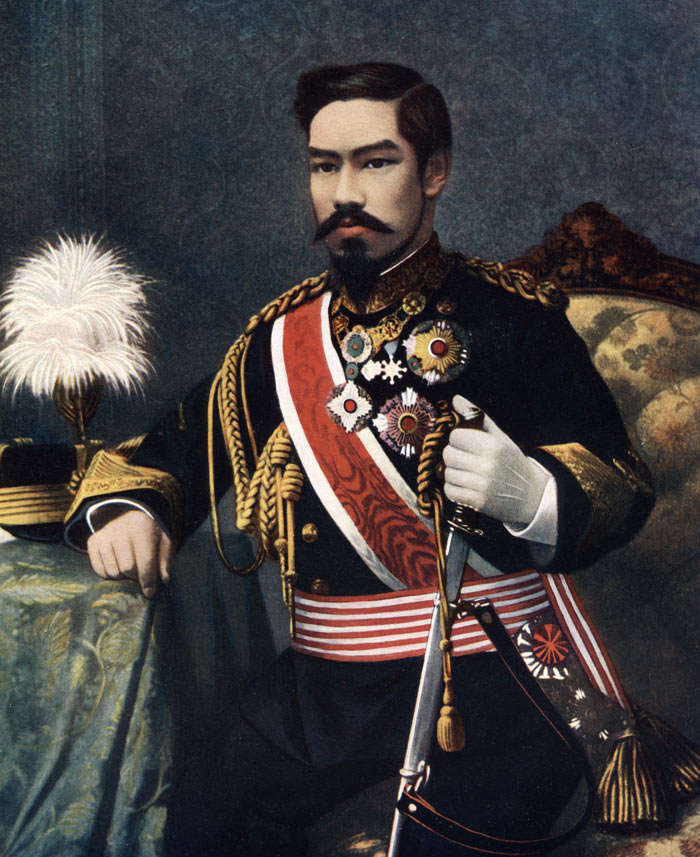Emperor Meiji (1852 – 1912)
 Born Mutsuhito, the 122nd emperor of Japan reigned from 1867 until his death in 1912. His reign, known as the Meiji era, marked a period of profound transformation in Japan. Under his leadership, Japan transitioned from a feudal society to a modern, industrialized nation. Emperor Meiji supported the adoption of Western ideas and technologies, which led to significant reforms, including the abolition of the feudal land system, the establishment of a new school system, and the creation of a constitutional government. His reign also saw Japan's victories in the First Sino-Japanese War and the Russo-Japanese War, establishing Japan as a formidable global power. Emperor Meiji's legacy is one of modernization and the successful integration of Western innovations with traditional Japanese culture.
Born Mutsuhito, the 122nd emperor of Japan reigned from 1867 until his death in 1912. His reign, known as the Meiji era, marked a period of profound transformation in Japan. Under his leadership, Japan transitioned from a feudal society to a modern, industrialized nation. Emperor Meiji supported the adoption of Western ideas and technologies, which led to significant reforms, including the abolition of the feudal land system, the establishment of a new school system, and the creation of a constitutional government. His reign also saw Japan's victories in the First Sino-Japanese War and the Russo-Japanese War, establishing Japan as a formidable global power. Emperor Meiji's legacy is one of modernization and the successful integration of Western innovations with traditional Japanese culture.
>>> Next exhibit page: Haile Selassie
<<< Previous exhibit page: Tipu Sultan










